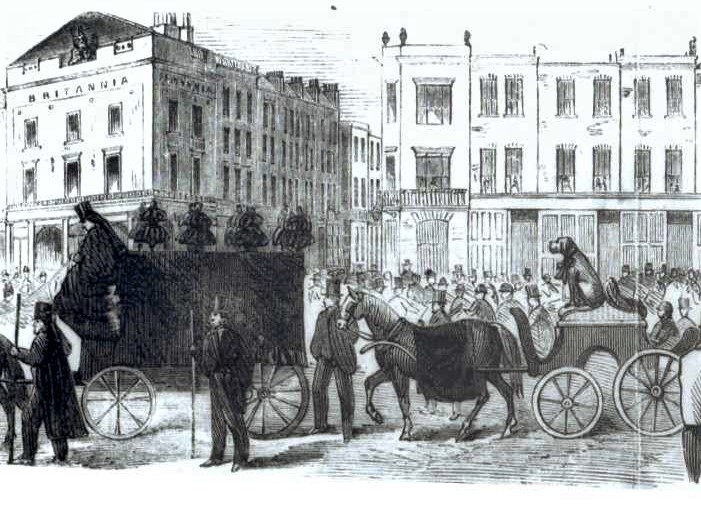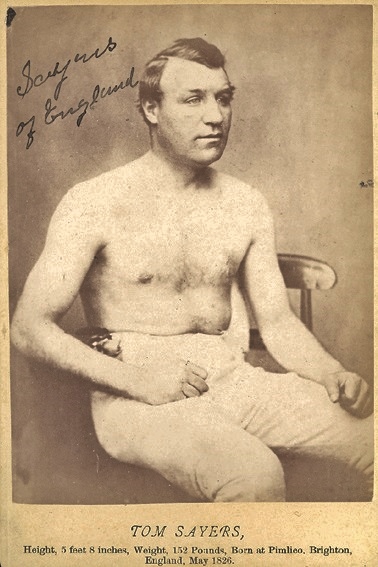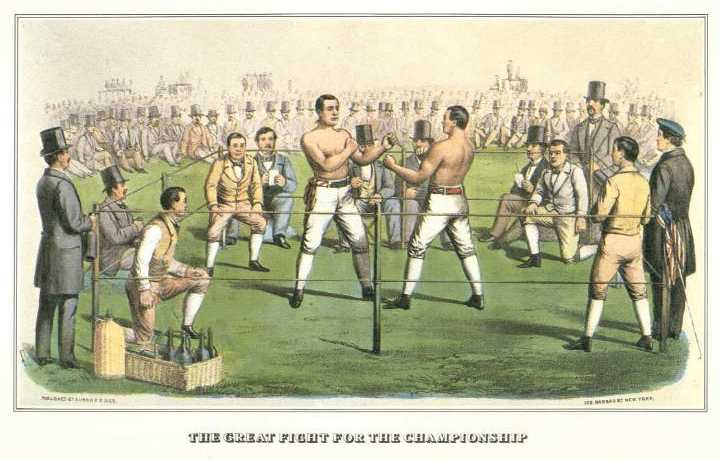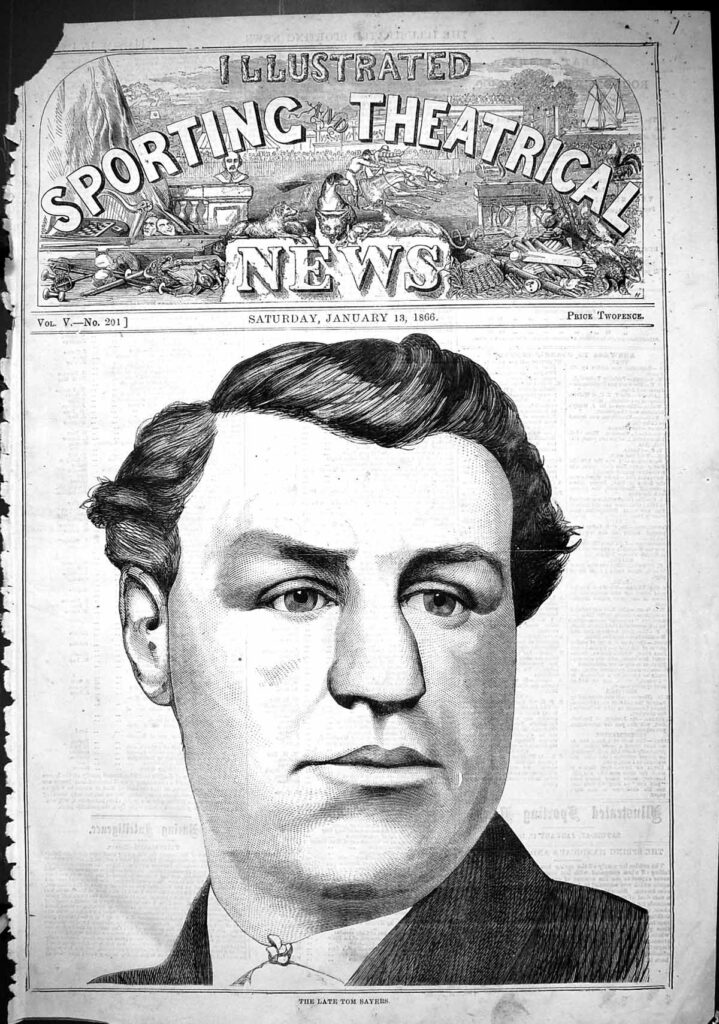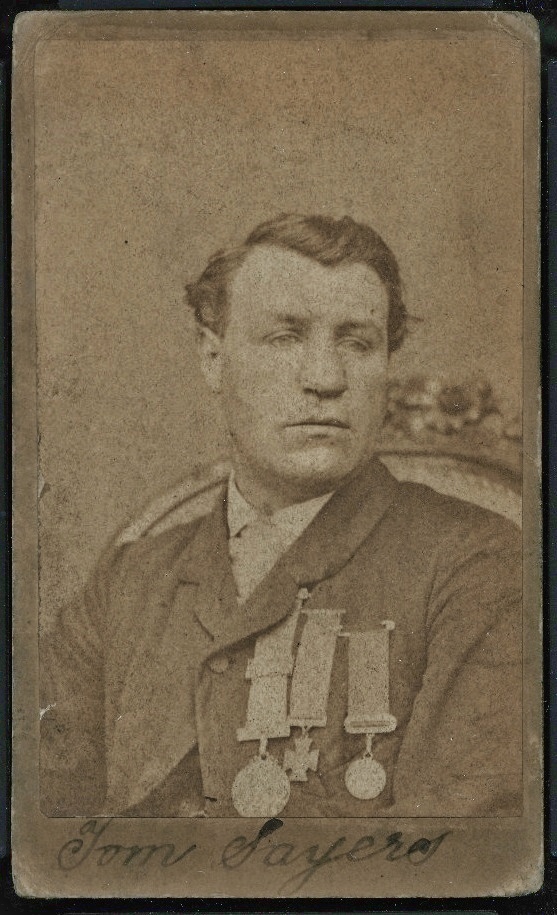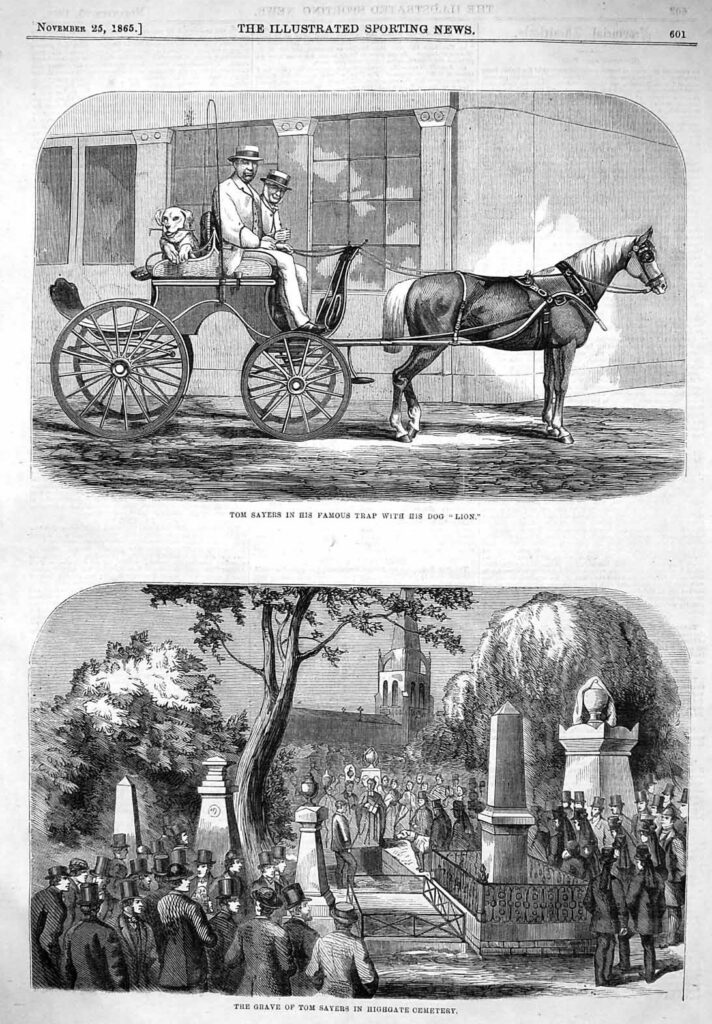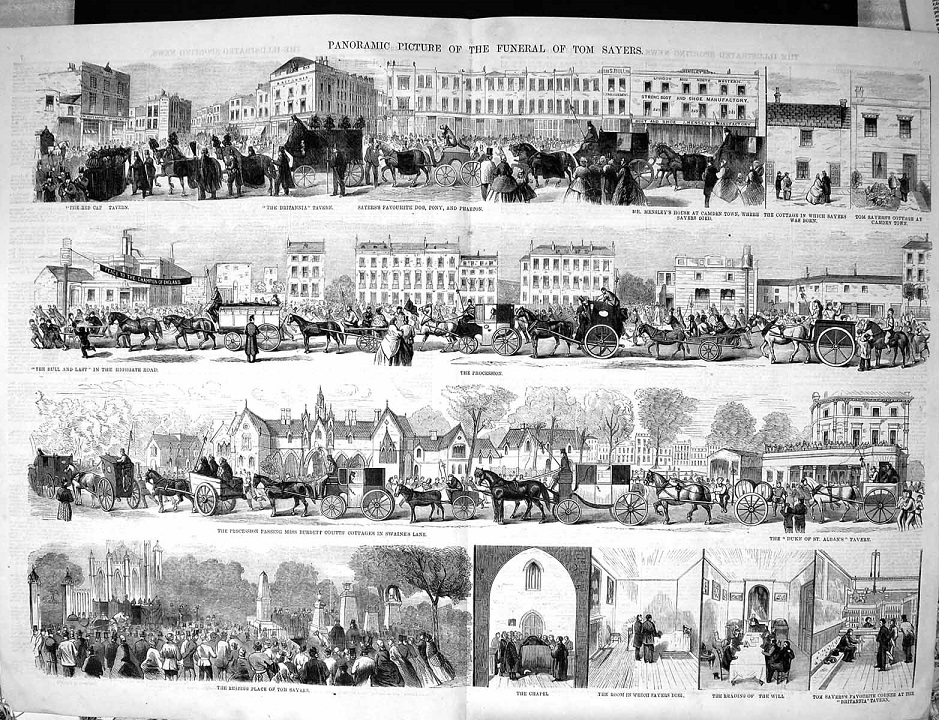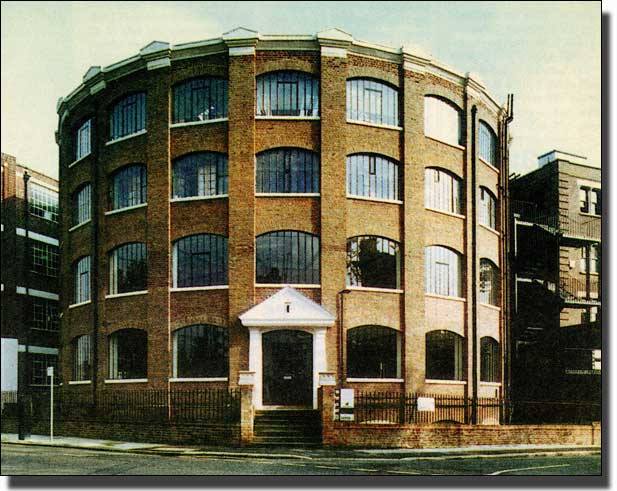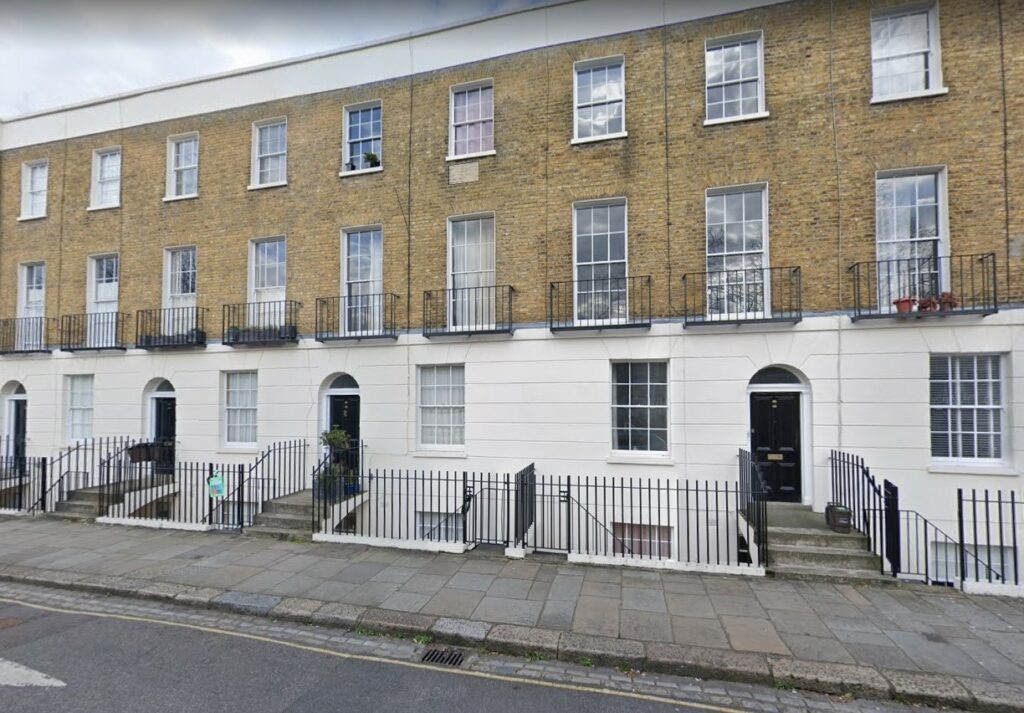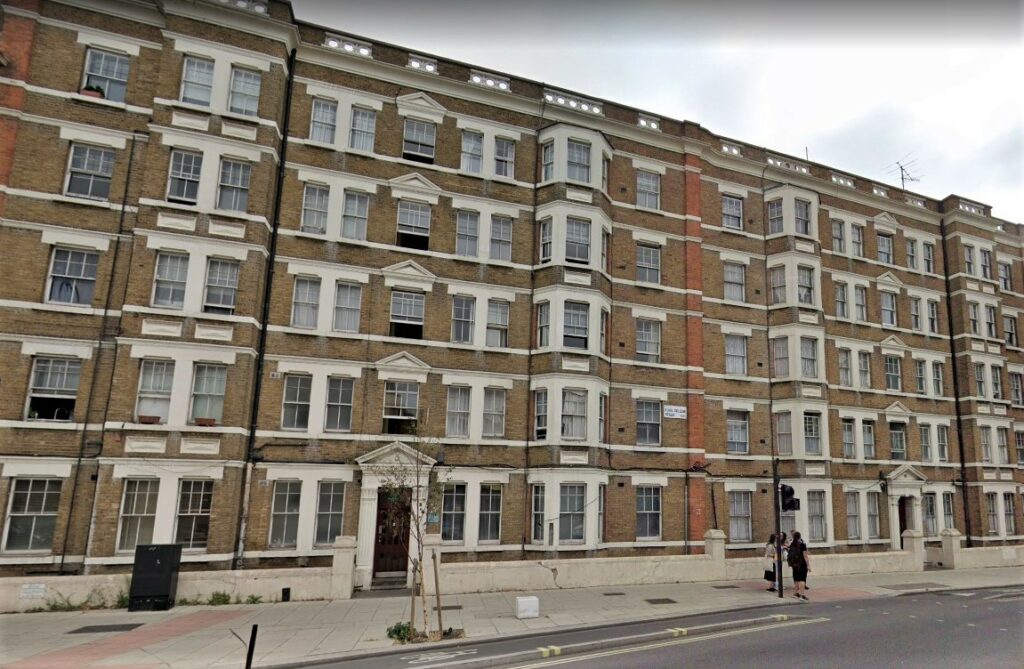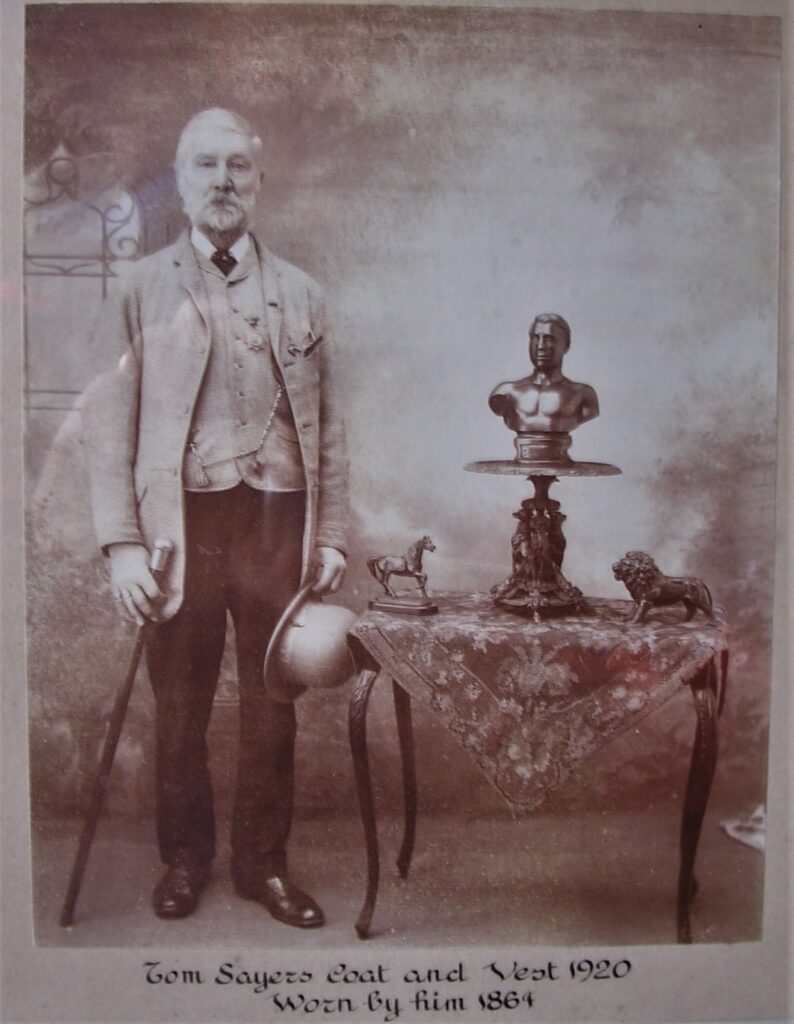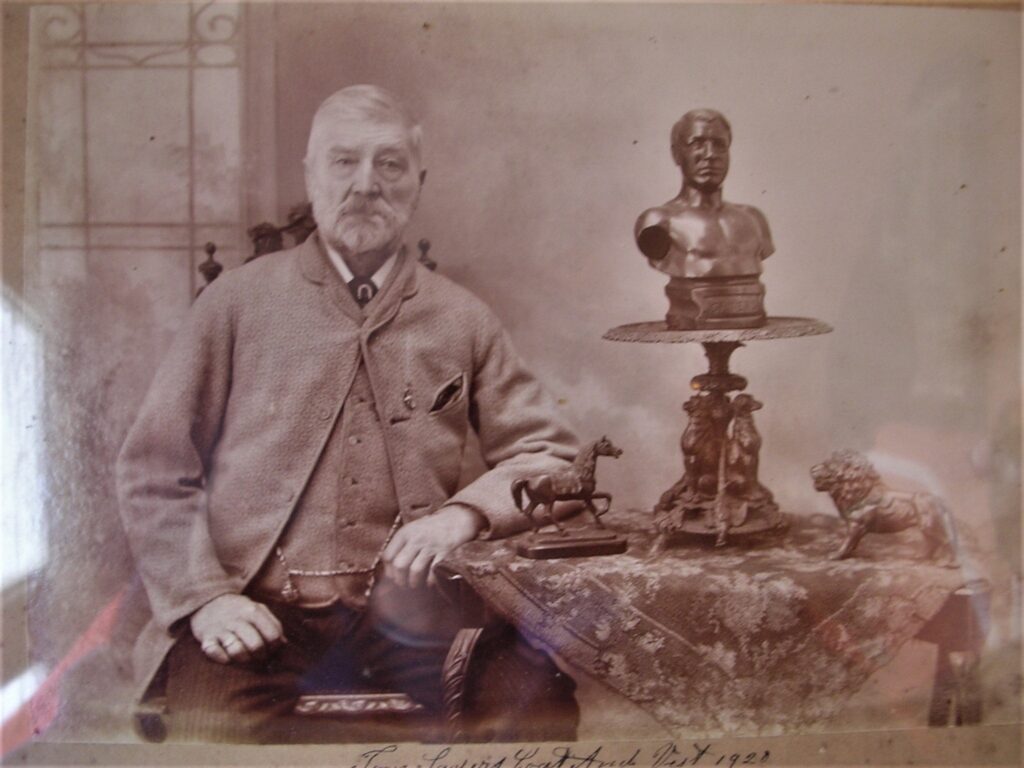We now fast forward again to February 1863 when several provincial newspapers, including the Liverpool Mercury and the Middlesex Chronicle carried reports of a disturbance at the Sayers house.
At the Clerkenwell Police Court, yesterday, Charlotte Sayers aged 30 residing at No. 10 Bellevue Cottages, Camden Street, Camden Town, described as of no occupation, was charged before Mr D’Eyncourt with wilfully breaking 20 panes of glass, value 10s, the property of Thomas Sayers, ex-champion of England and Circus proprietor. When the charge was called on it was found that the sheet was not signed with the name of the complainant, but only with a cross, and upon Sayers being asked if that was his he answered in the affirmative.
Mr De’Eyncourt: Do you wish to proceed against your wife for the damage? Tom Sayers: Oh yes. – The defendant (who was showily attired and had on a hat) said: Let him. I am covered in bruises where he has knocked me about, and my arms are black and blue from his ill-usage and he has repeatedly knocked me about. -Sayers then proceeded and said the defendant had been away from home for two nights and on her return, she ill-used him. On Thursday about 12 o’clock she went to his house and made a great disturbance, and then went outside and threw stones through his windows. She broke 20 windows and the damage amounted to about 10s. He wanted the defendant to keep away and not to annoy or molest him anymore, as he was tired of it. She caused a large mob of persons to assemble around his house, and this annoyed him and the neighbours.
The defendant said that she was a married woman, and when her husband left her, Sayers took his place, and had cohabited with her ever since. When he came to her, she had a house full of property.
Mr De’Eyncourt enquired if it was true that the defendant was not the complainant’s wife, and if so, if he intended to live with her anymore. If true it was not very creditable to either party. Sayers replied that it was true the defendant was not his wife. He did not intend to live with her any more, as he thought he had quite enough of it. This was not the first case of the kind.
The defendant said that her husband had left her eight years ago and the complainant and his children came to live with her, and she looked after them. She complained that the complainant on Wednesday returned home under the influence of liquor, broke up her furniture, and threw it into the street, and then threw her out. He told her, after she had taken some of the goods to a little room she had engaged, that if she came on the following day that she could have the rest, and when she went quietly for them, he refused to give them to her. He had now got a watch and chain, some brooches, and other articles belonging to her in his possession.
Mr De’Eyncourt enquired if that was true, and remarked that if it was so, the complainant had better give them up and avoid disputes of this kind. Sayers said there was nothing of the sort in the house; but if there was anything belonging to her there she was at liberty to have it, and more if she required it, as he did not wish to have anything more to do with her.
Mr De’Eyncourt (to the defendant) – will you promise me to keep away from the complainant and not to annoy him? It is not because he has cohabited with you that you are to annoy him, although there is not much to say on either side. The defendant said she would if the magistrate compelled him to give up her goods and also granted her a summons for the assault. On one occasion he nearly killed her, and although he was taken to the police station she would not attend and press charges. She now had bruises on her arms and body from his violence.
Mr De’Eyncourt said there must be no “ifs” in the question. He then ordered her to be bound over in the sum of £10 to keep the peace towards Sayers and all her Majesty’s subjects for six calendar months. -When Sayers left the court, he was followed by a troop of boys.
